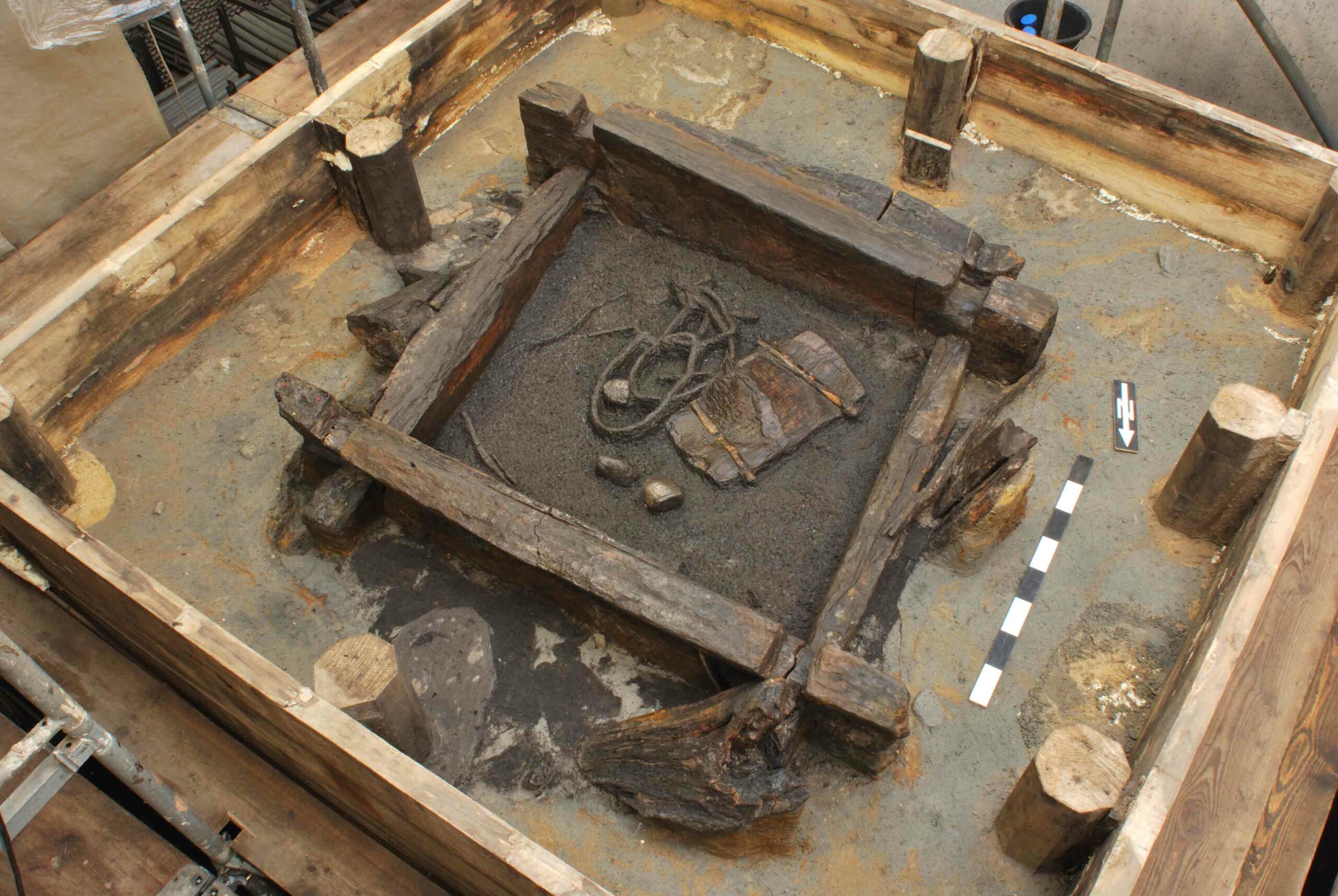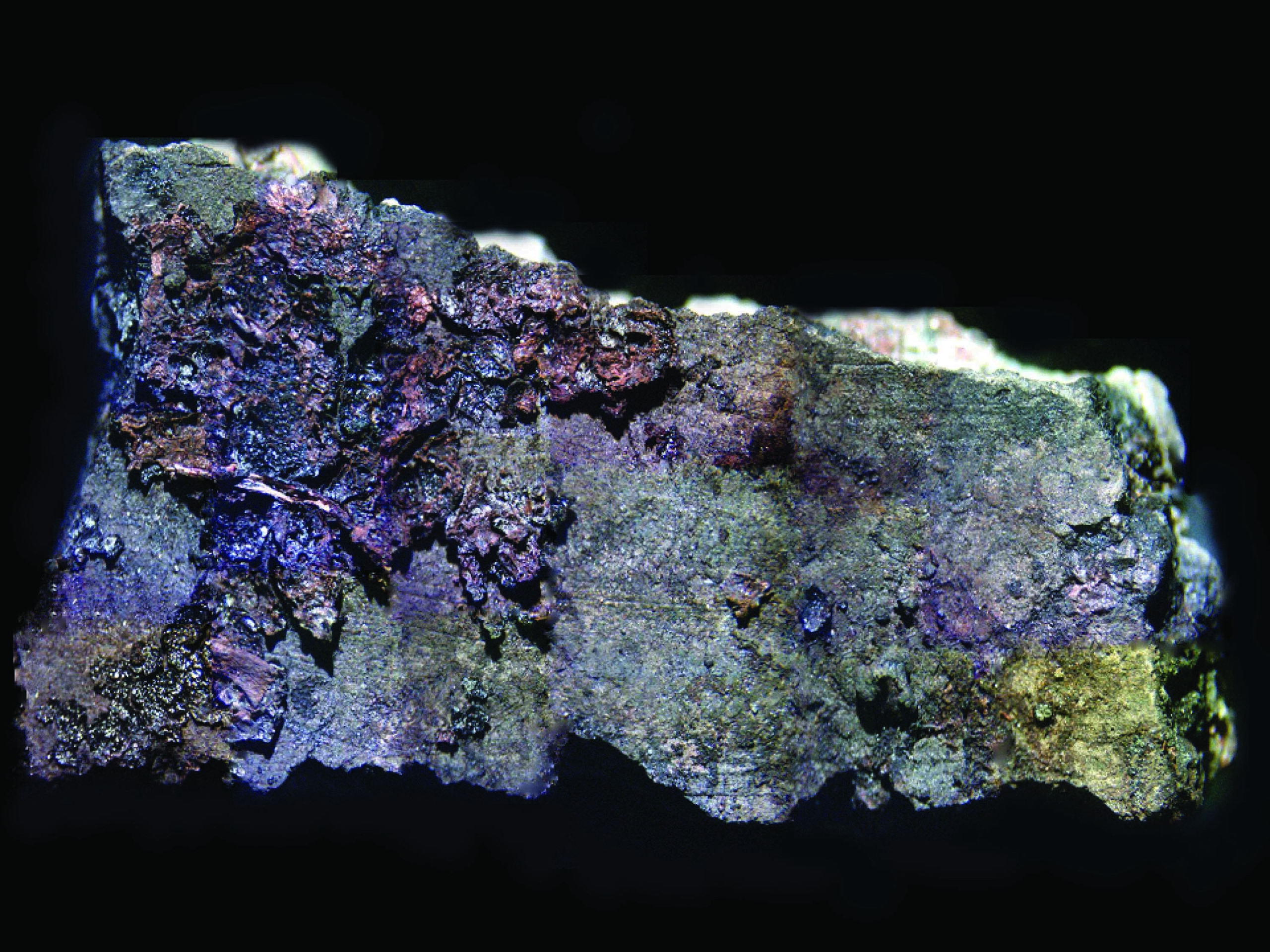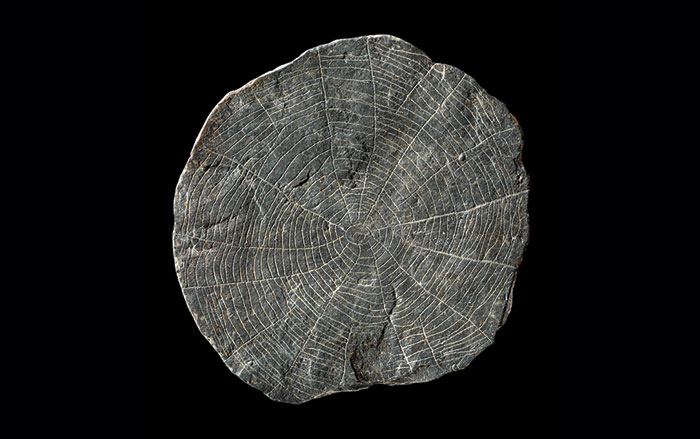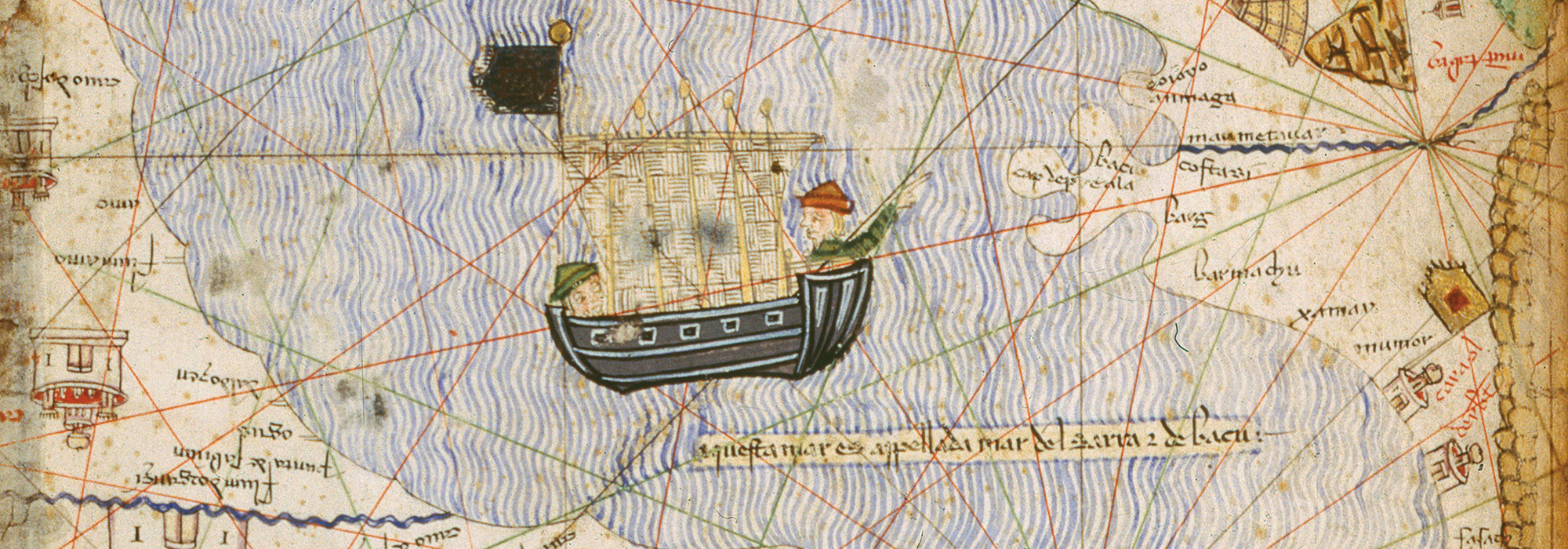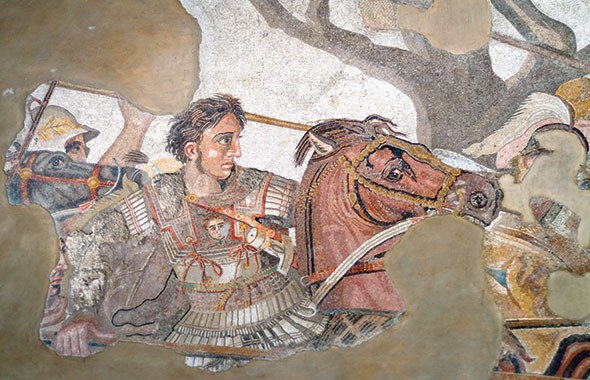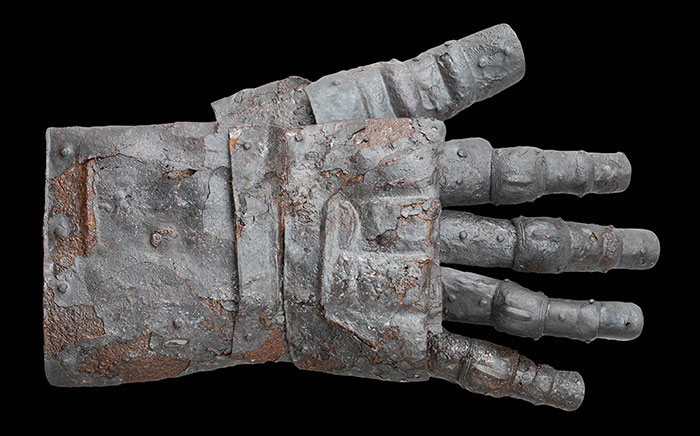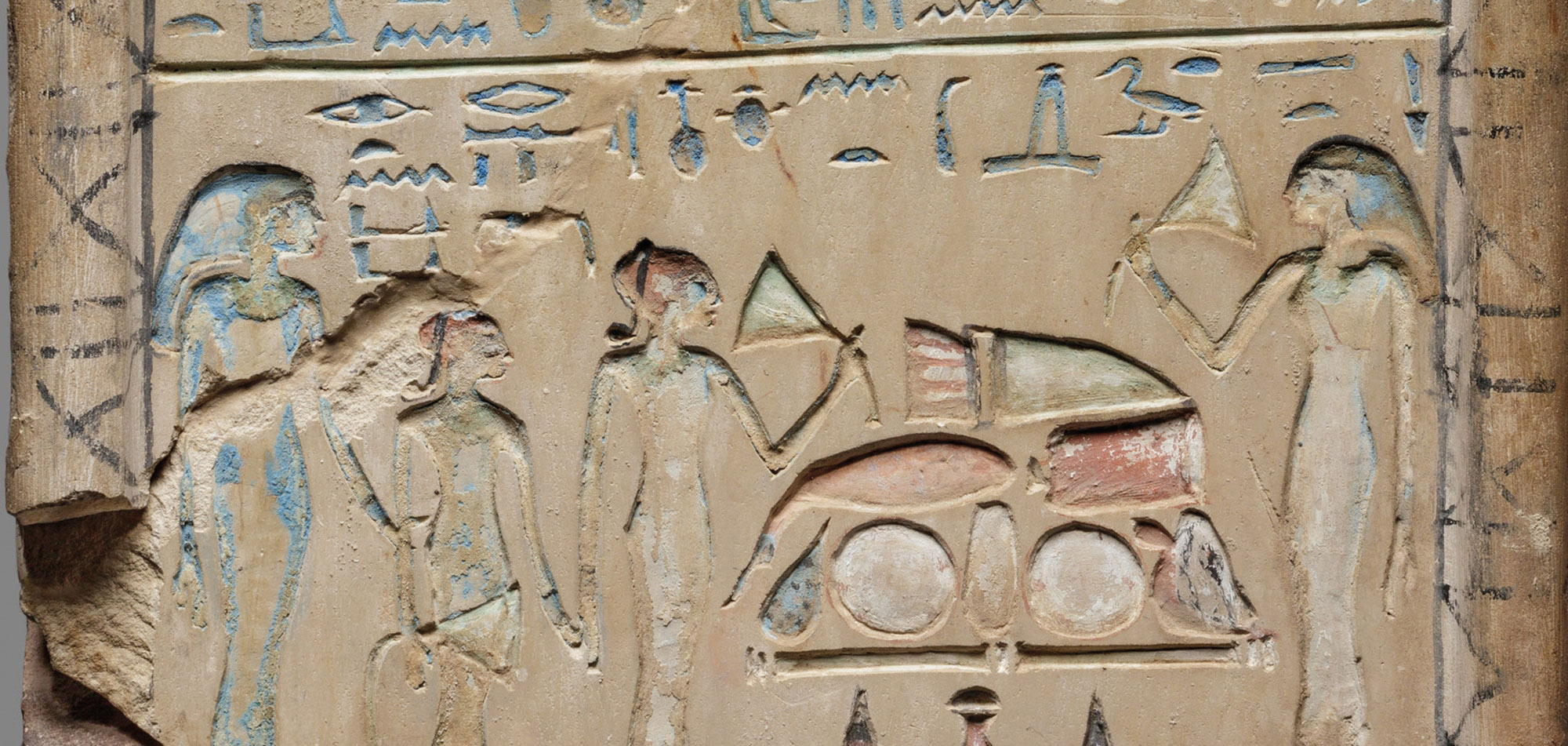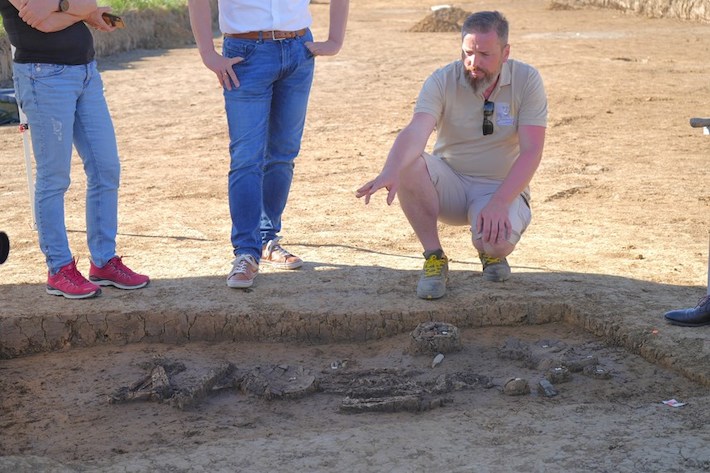
EICHENDORF, GERMANY—Live Science reports that a 6,800-year-old grave has been unearthed in southeastern Germany by archaeologist Florian Eibl of Bavaria’s Dingolfing-Landau District and his colleagues. Food and drink vessels, pigments, a stone ax, a stone adze, a boar’s tooth that had been split in two, and gold jewelry were recovered from the burial, which is thought to have belonged to an elder or chieftain of the community. The split boar’s tooth may have been used as a container for a flint blade and fire-lighting tools, Eibl said. Because boars are dangerous creatures, possession of a boar’s tooth may have been a status symbol, he surmised. Researchers will create a 3-D model of the human remains, which had been placed in the grave in a squatting position, before they are analyzed for information about the person’s sex and age at the time of death. To read about a rare Bronze Age weapon unearthed in Bavaria, go to "A Sword for the Ages."


